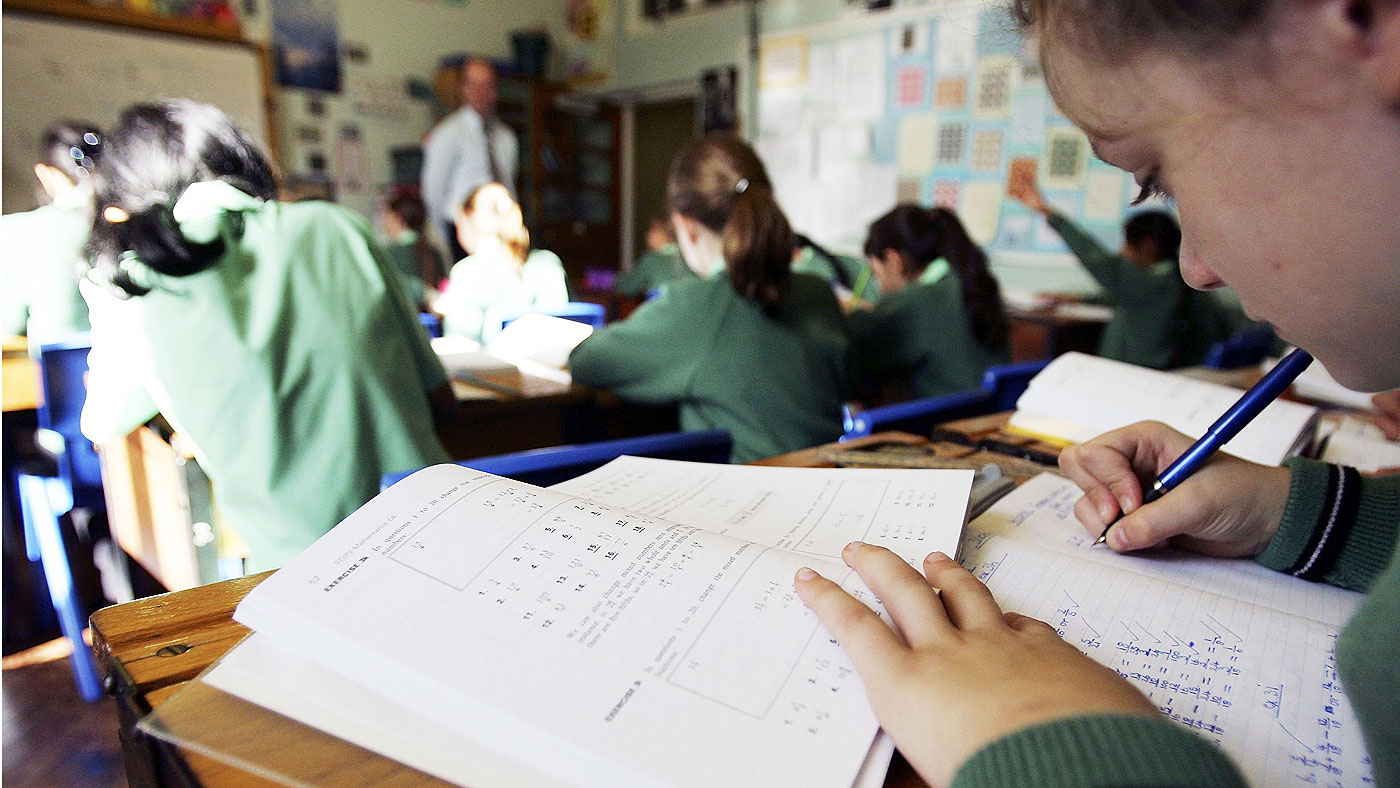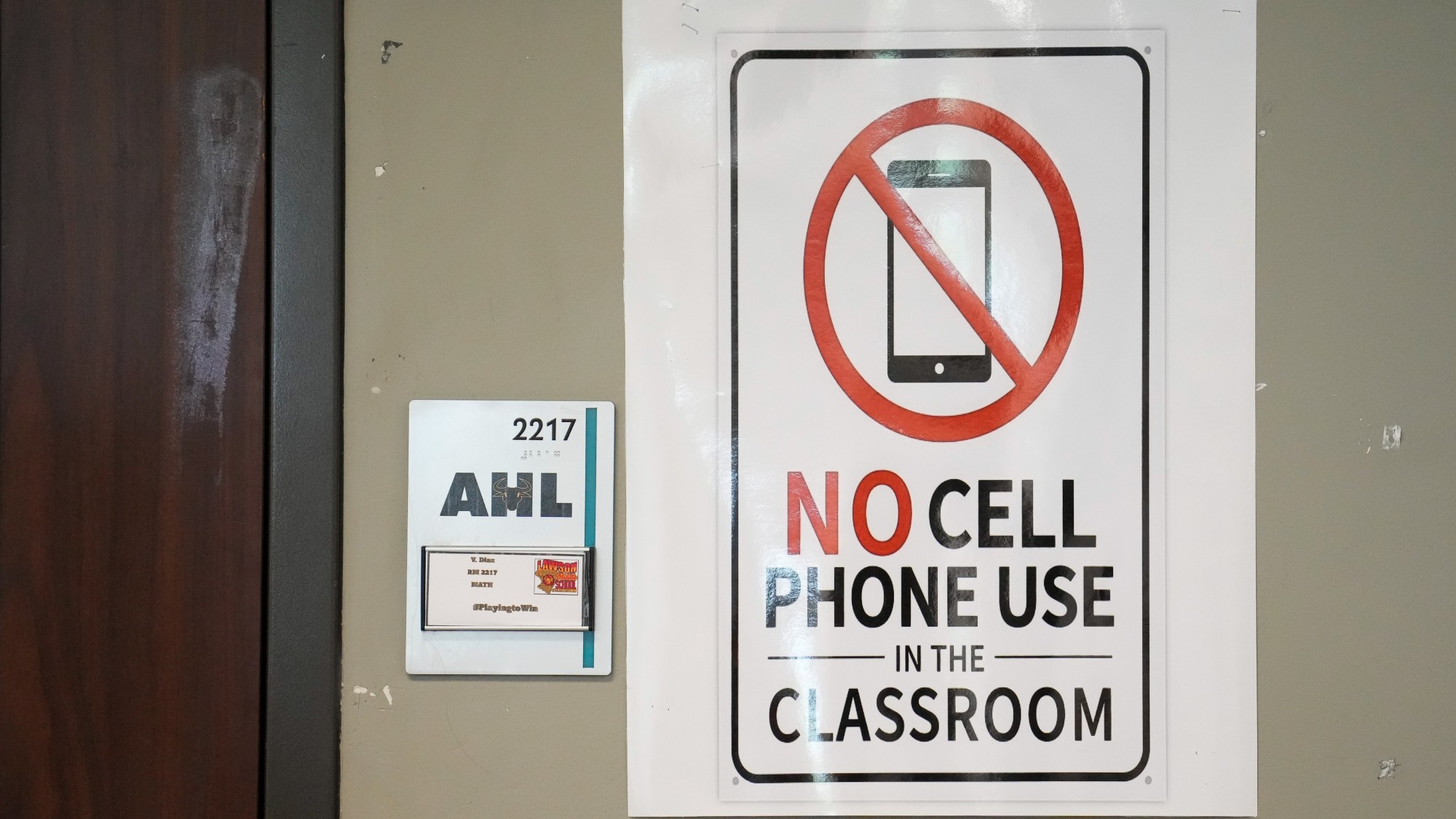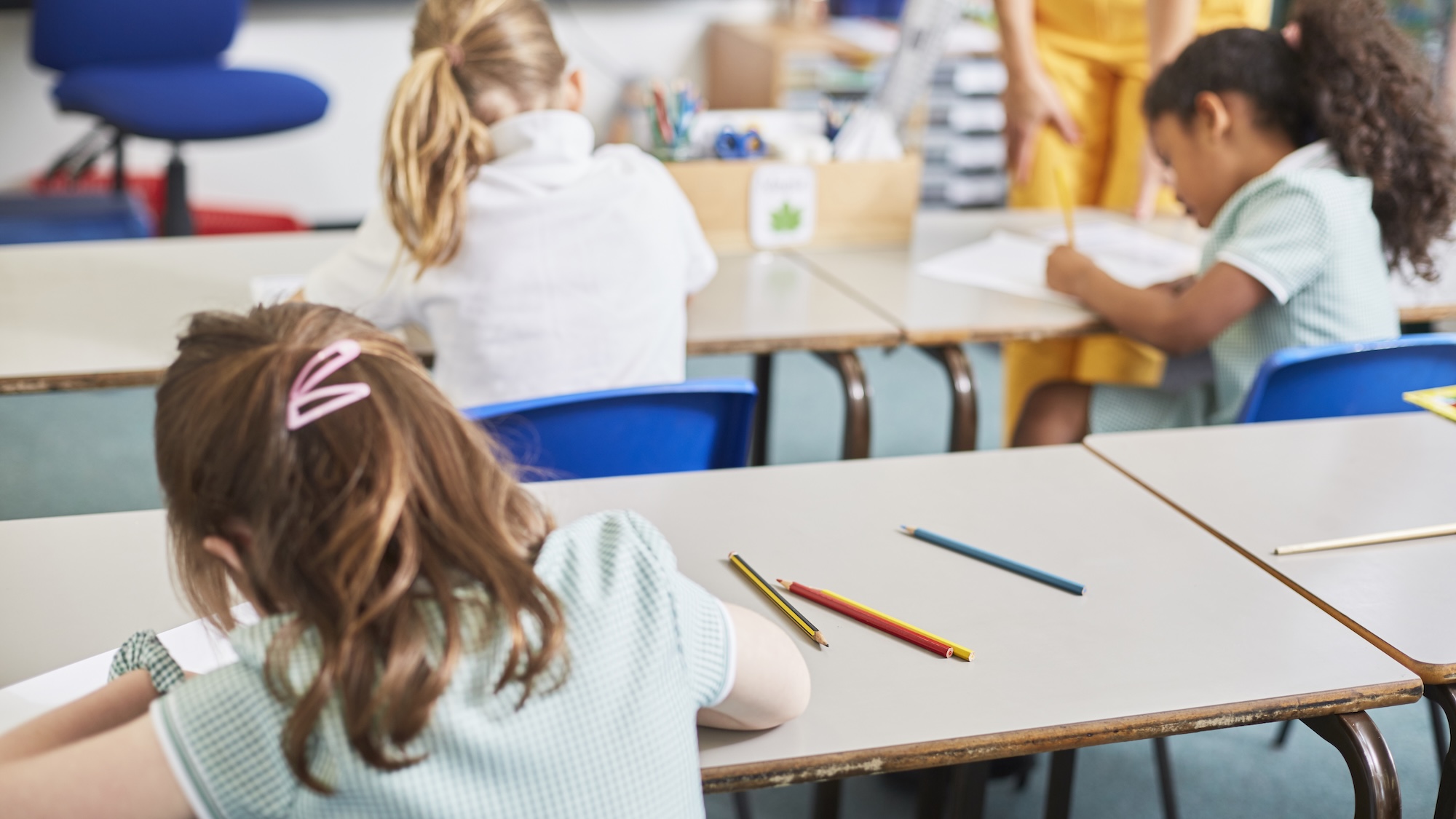Grammar schools ‘no better than other schools’, says study
Researchers warn that grammar schools ‘create social segregation for no clear gain’

A free daily email with the biggest news stories of the day – and the best features from TheWeek.com
You are now subscribed
Your newsletter sign-up was successful
Grammar schools in the UK “do no better in terms of pupil achievement than other schools”, according to a new study.
Researchers at Durham University have found that pupils at selective schools have a “similar level of achievement to their equivalent peers at non-selective schools”, once factors such as socio-economic background and previous educational attainment are taken into account, ITV reports.
The academic records of 549,203 pupils across England were analysed for the study.
The Week
Escape your echo chamber. Get the facts behind the news, plus analysis from multiple perspectives.

Sign up for The Week's Free Newsletters
From our morning news briefing to a weekly Good News Newsletter, get the best of The Week delivered directly to your inbox.
From our morning news briefing to a weekly Good News Newsletter, get the best of The Week delivered directly to your inbox.
It found grammar schools took only 2% of children eligible for free school meals, compared to 14% nationally, which means comprehensive schools in the same areas are taking on disproportionately more poorer students.
Furthermore, the study showed that grammar school pupils are less likely to have special educational needs, less likely to speak English as an additional language and more likely to live in wealthy areas.
Although on paper grammar school pupils get higher average GCSE grades than non-selective school students, the study claims that grammar school pupils perform similarly to other students once factors such as wealth are taken into account.
Plans to increase the number of grammar schools in England were abandoned last year after Prime Minister Theresa May lost her majority in the general election, “but the new Education Secretary Damian Hinds has indicated he will allow existing grammars to expand”, writes iNews.
A free daily email with the biggest news stories of the day – and the best features from TheWeek.com
Professor Stephen Gorard, of Durham’s School of Education, said: “The progress made by grammar school students is the same as progress made by equivalent children who do not go to grammar school, on average.”
He also said: “Dividing children into the most able and the rest from an early age does not appear to lead to better results for either group.
“This means that the kind of social segregation experienced by children in selective areas in England, and the damage to social cohesion that ensues, is for no clear gain.
“This is not to decry the schools that are currently grammars, or the work of their staff. However, the findings mean that grammar schools in England endanger social cohesion for no clear improvement in overall results. The policy is a bad one.”
The study, published in the British Journal of Sociology of Education, also reveals that pupils from certain ethnic backgrounds - particularly Chinese, Pakistani and Bangladeshi - make up a larger percentage of grammar school students than they do of those at other schools.
-
 ‘This is something that happens all too often’
‘This is something that happens all too often’Instant Opinion Opinion, comment and editorials of the day
-
 House votes to end Trump’s Canada tariffs
House votes to end Trump’s Canada tariffsSpeed Read Six Republicans joined with Democrats to repeal the president’s tariffs
-
 Bondi, Democrats clash over Epstein in hearing
Bondi, Democrats clash over Epstein in hearingSpeed Read Attorney General Pam Bondi ignored survivors of convicted sex offender Jeffrey Epstein and demanded that Democrats apologize to Trump
-
 The pros and cons of banning cellphones in classrooms
The pros and cons of banning cellphones in classroomsPros and cons The devices could be major distractions
-
 School phone bans: Why they're spreading
School phone bans: Why they're spreadingFeature 17 states are imposing all-day phone bans in schools
-
 Schools: The return of a dreaded fitness test
Schools: The return of a dreaded fitness testFeature Donald Trump is bringing the Presidential Fitness Test back to classrooms nationwide
-
 Send reforms: government's battle over special educational needs
Send reforms: government's battle over special educational needsThe Explainer Current system in 'crisis' but parents fear overhaul will leave many young people behind
-
 Education: Can public schools be religious?
Education: Can public schools be religious?Feature A Supreme Court seems ready to rule in favor of religious charter schools in Oklahoma, which could reshape public education
-
 America's academic brain drain has begun
America's academic brain drain has begunIN THE SPOTLIGHT As the Trump administration targets universities and teachers, educators are eying greener academic pastures elsewhere — and other nations are starting to take notice
-
 Schools' Send crisis: how can it be fixed?
Schools' Send crisis: how can it be fixed?Today's Big Question Government urged to reform support for children with special educational needs and disabilities and save councils from bankruptcy
-
 Unschooling: the radical education trend raising eyebrows
Unschooling: the radical education trend raising eyebrowsUnder the radar Some parents are letting their children lead their education